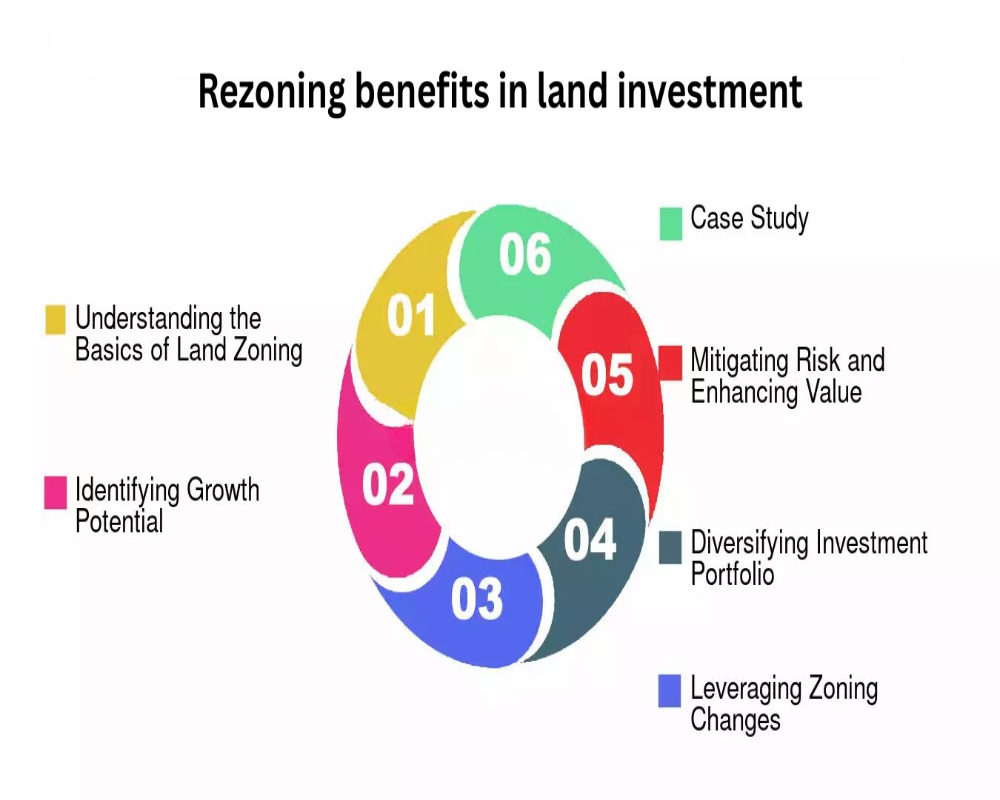Introduction Rezoning in land investment refers to the process of legally changing a land parcel’s designated use, typically from residential, agricultural, or industrial to commercial or mixed-use. This transition opens the door to new development possibilities and significantly increases the land’s utility and market value. For real estate investors and developers, rezoning is a strategic tool that...
Investment
Introduction Rezoning is the official legal process of changing the land use classification of a property, often from residential, agricultural, or industrial to commercial. This process allows the land to be used for business activities such as retail outlets, office spaces, hotels, or warehousing. Rezoning is governed by municipal and urban planning authorities, and its approval depends on development...
Introduction Commercial rezoning is the legal process of changing a land parcel’s designated use from residential, agricultural, or industrial to commercial under local planning authority regulations. This transformation grants the land permission for commercial activities such as retail, offices, hospitality, warehousing, or mixed-use development. Rezoning not only increases the land’s functionality...
Introduction Investing in commercial land with the intent of rezoning is a powerful strategy that can significantly increase land value and profitability. Rezoning involves changing the land’s legal use classification—such as converting agricultural or residential land into commercial status—through municipal or local government approval. This legal transformation unlocks the land’s potential for...
Introduction Scalability in raw commercial land investment refers to the ability to expand or adapt an investment strategy to larger plots, wider geographies, or different phases of development while maintaining or improving profitability. Unlike fixed real estate assets, raw land offers flexibility in how it is held, developed, or monetized over time. This flexibility makes it suitable for individual...
Introduction Market trends in raw land segments provide insight into evolving investment patterns, demand shifts, development priorities, and regulatory responses across the real estate landscape. Raw land, being undeveloped, offers flexibility in use and high potential for appreciation, which makes it a dynamic and strategic asset. The segment responds to urbanization, infrastructure projects, industrial...
Introduction Demand for raw commercial land is shaped by multiple interrelated factors that signal future growth, economic utility, and investor interest. These demand drivers determine where and when raw land becomes valuable for commercial development or investment. Understanding these elements helps buyers choose the right locations and time their investments strategically. While raw land itself may be...
Introduction Title checks are a critical component of due diligence in raw plot investments, especially for commercial land. A land title is the legal right to ownership and transfer of property. A clean and undisputed title ensures that the buyer is acquiring land from the rightful owner without any hidden claims or legal hurdles. In raw land deals, where development has not yet occurred, verifying title...
Introduction Due diligence is the systematic process of verifying and assessing all legal, technical, financial, and regulatory aspects of raw commercial land before finalizing a transaction. It protects investors from hidden risks, fraudulent claims, zoning violations, and future legal complications. Raw land, being undeveloped, carries uncertainties related to ownership, land use, infrastructure, and...
Introduction Establishing clear investment goals is a foundational step in acquiring raw land, especially for commercial purposes. Unlike developed properties, raw land does not generate immediate income and requires a long-term vision to maximize its value. Goals guide the investor’s decision-making process, from location selection and financing to development planning and exit strategy. Whether...










